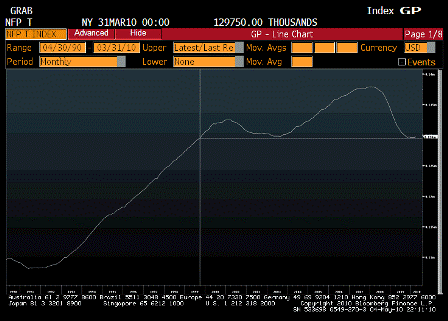OPEC (and mainly the Saudis) is the only entity with excess capacity, so it is necessarily price setter. Specifically, they post prices to their refiners and who order all they want at that price. They don’t sell in the spot markets. See highlighted text below. ‘Balancing supply and demand’ is price setting.
The higher prices, particularly in euro, are functioning as a drag on the oil importing economies and also starting to show up in their inflation reports, complicating the decision process of the world’s central bankers. The combination of low aggregate demand and cost push price pressures is always problematic with regards to interest rate policy.
By Christian Schmollinger
May 4 (Bloomberg) — Russian and Mexican oil is trading at growing discounts to U.S. and U.K. crude benchmarks as production by nations outside OPEC reaches a record.
Russia’s Urals for loading in the Mediterranean trades at $2.22 a barrel less than Britain’s Brent crude, compared with a premium of 3 cents a barrel on July 24. The discount between Mexico’s Maya grade and West Texas Intermediate was at $10.82 a barrel on April 30, near the widest in 17 months.
Rising output from Russia and Mexico will push non-OPEC supplies up 1 percent this year to an average 52 million barrels a day, according to the International Energy Agency. At the same time, quota violations among members of the Organization of Petroleum Exporting Countries means global production will increase at a time when the need for oil is diminishing.
“Inventories are growing and non-OPEC supply is expanding and OPEC continues to leak,” said Victor Shum, a senior principal at consultants Purvin & Gertz Inc. in Singapore. “Market bulls should be concerned about the supply overhang.”
The U.S., Mexico, China and Russia have been responsible for most of the growth, boosting output for the past five consecutive quarters, according to an April 27 research note by Barclays Capital. Non-OPEC production reached a record high 49.6 million barrels a day in March, according to data from Energy Intelligence Group.
OPEC Less Needed
The IEA lowered its demand estimate for OPEC, which produces 40 percent of the world’s oil, by 200,000 barrels day to an average of 28.8 million barrels a day to balance supply and demand. The group currently pumps 29.2 million a day, according to Bloomberg data.
OPEC’s spare capacity levels have ballooned to 5.645 million barrels a day in April after falling as low as 2 million in July 2008, when crude hit a record $147.27. The group can produce a total of 34.84 million a day and may add 12 million barrels by 2015 by opening 140 new projects, Secretary- General Abdalla El-Badri said in February.
Russia, the world’s largest oil producer, pumped 10.14 million barrels a day in March, a post-Soviet Union high, according to official data. Mexico exported 1.33 million a day in March, the highest since January 2009, according to data from Petroleos Mexicanos.
U.S. production surged during 2009 and into this year as output returned from post-Hurricane Ike shut-ins in September 2008. The country has pumped an average of 4.482 million barrels a day in the first four months of 2010, up 6.6 percent from the average in 2006 and 2007.
Price Pressure
“If the positive momentum carries into the rest of 2010 and starts filtering through non-OPEC output views for 2011, this could result in a more significant source of downward price pressure along the curve,” said Barclays Capital analyst Costanza Jacazio in the note.
Crude oil for June delivery was at $85.94 a barrel at 10:28 a.m. Singapore time in after-hours electronic trading on the New York Mercantile Exchange, retreating from yesterday’s intraday peak of $87.15, the highest since Oct. 9, 2008.
“The pricing has been driven by the expectations of a tighter market over the long-term and the market has put aside the near-term supply overhang,” said Purvin & Gertz’s Shum.
The non-OPEC “momentum raises the crucial question of whether or not it is sustainable,” said Barclays. “If it fades quickly, as we expect, this will likely have limited implications for oil balances and prices, as OPEC stands in a position to handle a short-term rise in non-OPEC output by simply postponing any further increase in volumes.”


